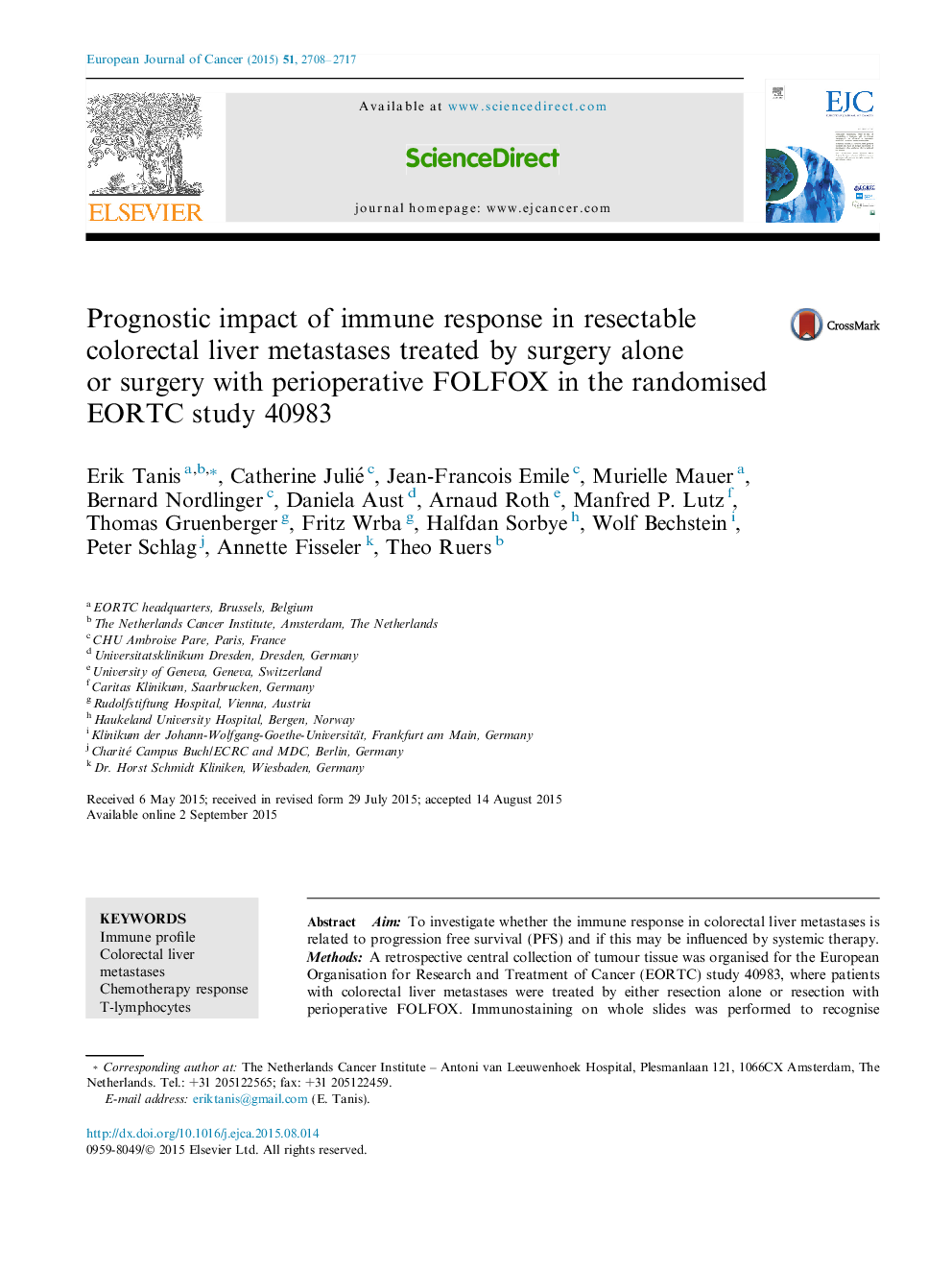| Article ID | Journal | Published Year | Pages | File Type |
|---|---|---|---|---|
| 2121638 | European Journal of Cancer | 2015 | 10 Pages |
•Neo-adjuvant FOLFOX chemotherapy positively influences a local immune response.•An immune response is associated with an improved pathological response.•An immune response is associated with significant better progression free survival.
AimTo investigate whether the immune response in colorectal liver metastases is related to progression free survival (PFS) and if this may be influenced by systemic therapy.MethodsA retrospective central collection of tumour tissue was organised for the European Organisation for Research and Treatment of Cancer (EORTC) study 40983, where patients with colorectal liver metastases were treated by either resection alone or resection with perioperative FOLFOX. Immunostaining on whole slides was performed to recognise T-lymphocytes (CD3+, CD4+, CD8+), B-lymphocytes (CD20+), macrophages (CD68+) and mast cells (CD117+) inside the tumour, at the tumour border (TNI) and in normal liver tissue surrounding the tumour (0.5–2 mm from the TNI). Immunological response was compared between treatment arms and correlated to PFS.ResultsTumour tissue and immune response profiles were available for 82 resected patients, 38 in the perioperative chemotherapy arm and 44 in the surgery alone arm. Baseline patient and disease characteristics were similar between the treatment arms. In response to chemotherapy, we observed increased CD3+ lymphocyte and mast cell counts inside the tumour (p < 0.01), lower CD4+ lymphocytes in the normal liver tissue (p = 0.02) and lower macrophage counts in normal tissue (p < 0.01) and at the TNI (p = 0.02). High number of CD3+ lymphocyte and mast cells, and high T-cell score were correlated with tumour regression grade (TRG). Prolonged PFS correlated with the presence of mast cells in the tumour (9.8 versus 16.5 months, Hazard ratio (HR) 0.54 p = 0.03), higher CD3+ lymphocyte count at the TNI (10.8 versus 22.8 months, HR 0.57, p = 0.03) and T-cell score >2 (10.8 versus 38.6 months, HR 0.51, p = 0.04).ConclusionOur analyses in the context of a randomised study suggest that chemotherapy influences immune cell profiles, independent of patient characteristics. Immune responses of lymphocytes and mast cells were associated with pathological response to chemotherapy and to increased PFS. High CD3+ lymphocytes at the tumour front and intratumoural mast cells appear to be prognostic for patients with colorectal liver metastases.
